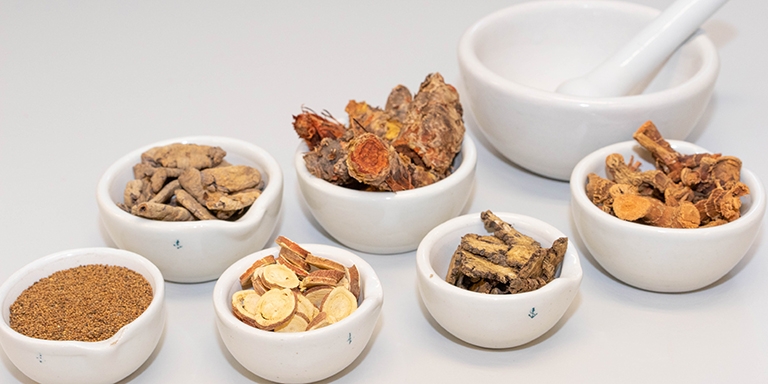The growing prevalence of dementia and Alzheimer’s disease (AD) in the global aging population prompted a neuroscience research team at the Hong Kong University of Science and Technology (HKUST) to find a way to prevent and treat these debilitating diseases.
It is believed that traditional Chinese medicine (TCM) is among the most well documented and practiced medicinal resources, with a few thousand years of practice behind it. Understanding the mechanisms of these TCMs will help enhance the development and application of TCMs in improving brain health.
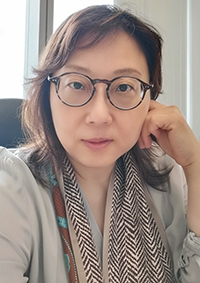
“This is why we started to look for bioactivity that is beneficial for maintaining brain health, in particular, for learning and memory, with TCM-based neuro-drug screening,” Dr. Ip, senior scientist at the State Key Laboratory of Molecular Neuroscience at HKUST, said. “We have a strong belief that promoting brain health with preventive treatment will be enormous.”
“To identify TCM treatments for dementia and AD, we focused on identifying TCMs that enhance communication between neurons, the dysfunction of which is believed to be a major cause of cognitive decline and memory loss” Dr. Ip explained. Indeed, promoting neuronal communication can be beneficial for treating other brain diseases, including ischemic injury (which is often caused by strokes) and Parkinson’s disease.
The promise of TCM in brain health and more
Symptoms of AD appear when neuronal degeneration reaches a point where communication between neurons becomes progressively dysfunctional. As AD can take 20 years to develop before symptoms appear, maintaining cognitive health is a pivotal part of healthy aging—an increasing concern as the elderly population continues to grow.
“We were already aware of this issue 20 years ago. Also, I was trained to be a neuroscientist with expertise to understand how neurons communicate during memory formation,” Dr. Ip said.
In 2018, leveraging over two decades of research experience in Chinese herbal medicines, Dr. Ip and her colleagues in the team established a start-up, Infitech, that develops brain health products backed by strong scientific findings.
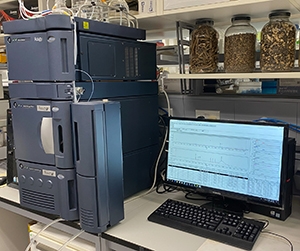
To combat the root cause of brain diseases, the team selected 100 types of herbs based on evaluations of documentation on their traditional clinical uses in brain health. Using advanced molecular screening methods, they identified active ingredients in these herbs that promote neuronal communication. Furthermore, a literature search on the herbs’ clinical uses suggests that some of the herbs exert pharmacological mechanisms that are linked to memory-enhancing effects. Through cell-based and animal-based experiments, the team developed three types of health supplements that enhance brain health and protect against brain diseases with specific focuses.
Dr. Ip explained that TCMs differ from Western medicines in that TCMs exert their optimised beneficial effects as a combination of herbs, often at a specific ratio. This decoction-based approach is the fundamental difference in the development of TCMs versus conventional Western therapeutics which often focus on just a single compound.
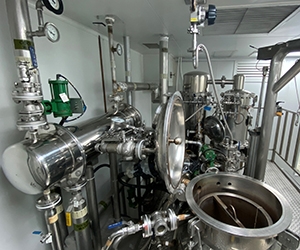
TCM remedies also differ from modern treatments because of their longer history of clinical usage. “The formulae had been subjected to clinical use with a lengthy practical history, therefore the safety doses for individual herbs are well-understood and documented,” Dr. Ip added. Similar to how the ancient Chinese treatise on medicine chronicled the different categories of potency and toxicity for different herbs, the Chinese Pharmacopoeia in modern days describes the optimal dosage range of each herb based on its sources and the targeted illnesses.
“We established different drug-screening platforms for specific purposes,” Dr. Ip said. “We identified formulae based on those initial screenings and developed the current formulae based on repetitive analyses and experiments of herbs from different sources and lots to optimize the herb combination and ratio .”
“Ensuring the bioactivity of the TCMs and their efficacy of each lot in the production is an important area for the advancement of TCM development,” Dr. Ip said. The herbs that Dr. Ip’s team uses for the screening and development of TCMs are all top grade. The formulae the team aims to develop have great potential to effectively promote brain health while only requiring a minimum dosage for long-term use.
From laboratory to public
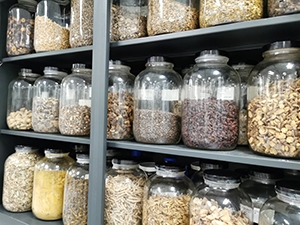
“Based on our extensive experience, we have already held the key knowledge on evaluating the quality of TCMs based on their functional bioactivity and marker compounds of the herbs in the TCM formulae,” Dr. Ip explained. “One thing I would like to stress is that, to ensure the efficacy of the TCM formulae, a well-characterized functional bioactivity profile for each TCM is important for its development.”
“Moreover, recent development of neuroscience research brings the possibility of evaluating the brain health of individuals using blood-based protein biomarkers; in particular, our research team developed blood biomarkers for dementia/AD,” Dr. Ip said. “Thus, we believe that with the blood biomarker data to support the beneficial effects of TCMs in people, there will be a possibility for the decoctions to be successfully developed as therapeutics.”
Dr. Ip said the team hopes to see encouraging research findings that can benefit society. Their work is backed by strong support from HKUST, particularly the Office of Knowledge Transfer, where the team has had opportunities to promote the start-up and its products.
“We participated in the Hong Kong Trade Development Council’s (HKTDC) inaugural Asia Summit on Global Health (ASGH) event where we could promote our technologies to customers and reach out to potential investors for further development,” Dr. Ip said.
She also shared that the team hopes to exchange ideas and opportunities with experts in the field at the international level. “We also attended the 2020 Hong Kong International Medical and Healthcare Fair. In the future, our team aims to develop additional health products that can enhance brain health, specifically focusing on those problems with unmet medical needs.”
Start-up funding
With strong support from the university, Infitech was awarded seed funding from the Innovation and Technology Commission of the Hong Kong government, under the Technology Start-up Support Scheme for Universities (TSSSU), in 2018/19 and 2019/20. The company is also a member of the HKUST Entrepreneurship Programme, which supports the team in networking with investors and with more practical matters such as providing a workspace.
Dr. Ip said her team, having taken part in ASGH, is interested in joining other upcoming HKTDC events such as the Hong Kong International Medical and Healthcare Fair or the International Conference of the Modernization of Chinese Medicine and Health Products.
Future perspectives
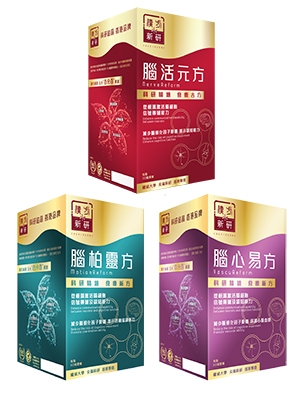
Dementia is a rapidly growing problem worldwide as the demographic profile of most countries changes and the proportion of people older than 65 increases, Dr. Ip explained. For example, in Hong Kong, 27% of the population will be over age 65 by 2033.
“Brain degeneration begins when people are in their 50s — as much as two decades before signs of the disease appear — which means preventive steps are crucial,” Dr. Ip said. The herbs selected by her team have a low toxicity and are safe to be taken over a lengthy period, so people who are at risk of dementia could start taking them in their 50s.
“Our group in the HKUST has been developing a blood biomarker test for AD,” Dr. Ip said, “but it will not be available on the market until next year. It would be best if those susceptible to dementia/AD start treatment before the test is available.”
Dr. Ip said that a family history of AD is one of the leading risk factors for the disease, and she encourages those over age 50 who have a very stressful lifestyle and subjectively feel that they do not have enough memory capacity to consider taking some precautions.
Dr. Ip said her team has received feedback from customers who said they can concentrate more easily and handle more tasks during their work since using Infitech’s products. “We are also evaluating whether the TCMs can help enhance cognitive ability in general population,” Dr. Ip said. “This will be our next step.”
Related links
HKUST Research Team
Infitech video: HKUST’s New Products to Prevent Alzheimer’s Disease
Cogniherbs video
Cogniherbs website
HKUST report: Strengthen Your Brain with Chinese Herbs to Prevent Alzheimer’s
